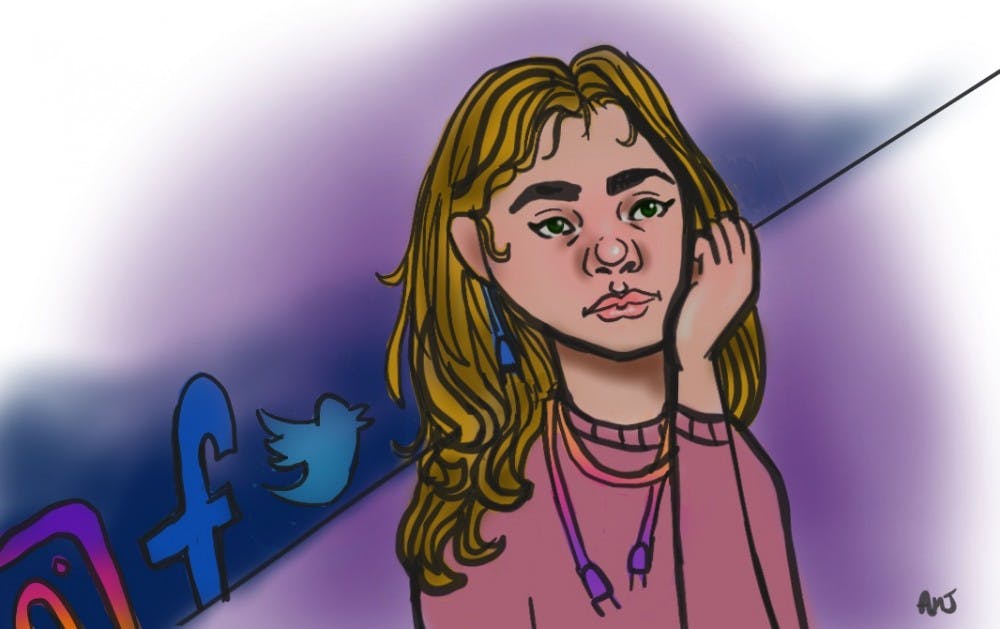Too many hours are wasted mindlessly scrolling through Instagram, liking posts of celebs and Insta-models who perpetuate unrealistic standards.
Whether it's an ex posting about their new significant other or not being tagged in an Instagram story, social media can cause harm to one's self esteem, mental health and can often cause students to spiral into a bad mindset.
College women should practice taking social media breaks in order to spend time not concerning themselves with other's appearances and social feeds.
According to a research study done by EPJ Data Science, “One may speculate that previous observations reporting decreased happiness among social media users may be associated with a widespread inflated perception of the happiness of one’s friends.”
Social media is used to highlight the high points in someone’s life. This makes it easier for people to judge their quality of life off of other's social feeds, trying to reach a certain level of happiness that can only be seen through a screen.
However, screens are only surface deep, and people cannot see the real struggles that others are going through which can make them question why they are not as happy as the people they see on their feeds.
Many college women may equate happiness with their outward images. When these images are often unattainable it can create unhealthy mindsets in young women and increase anxiety along with many other disorders.
According to an article written for In-Mind Magazine, "It was a common theme that women were dedicating extensive amounts of time to thinking about what image to upload, photoshopping it and regularly checking their personal page to see the updated 'like' counts, which in turn increased their own insecurities."
Christina Scribner, an instructor at the College of Health Solutions, runs the private practice Encompass Nutrition that works with people who struggle with eating disorders.
She said that social media can be addictive, so taking social media breaks can be hard. However, she has seen with her own patients how harmful social media can be.
“People are posting and everybody has this idea that we all need to be connected to social media if we want to be seen and be successful,” Scribner said. “So many people feel that if they are not liked, that their life has less meaning or purpose, or that they are less valuable overall.”
A study with the Computers in Human Behavior Journal found that high usage of cell phones and the internet "is associated with higher levels of anxiety, depression and overall psychological distress."
Logging off for a few days at a time could potentially help reduce the feeling of anxiety. According to the National Alliance on Mental Illness-Iowa, "one in four people between the ages of 18-24 develop a mental illness."
It is important to take a step back and make time for ourselves, especially during college. Social media will still be around in a week, or even a month. Log out of Instagram, delete Snapchat and take time to breathe.
Reach the columnist at psaso@asu.edu and follow @paytonsaso on Twitter.
Editor’s note: The opinions presented in this column are the authors’ and do not imply any endorsement from The State Press or its editors.
Want to join the conversation? Send an email to opiniondesk.statepress@gmail.com. Keep letters under 500 words and be sure to include your university affiliation. Anonymity will not be granted.
Like The State Press on Facebook and follow @statepress on Twitter.




